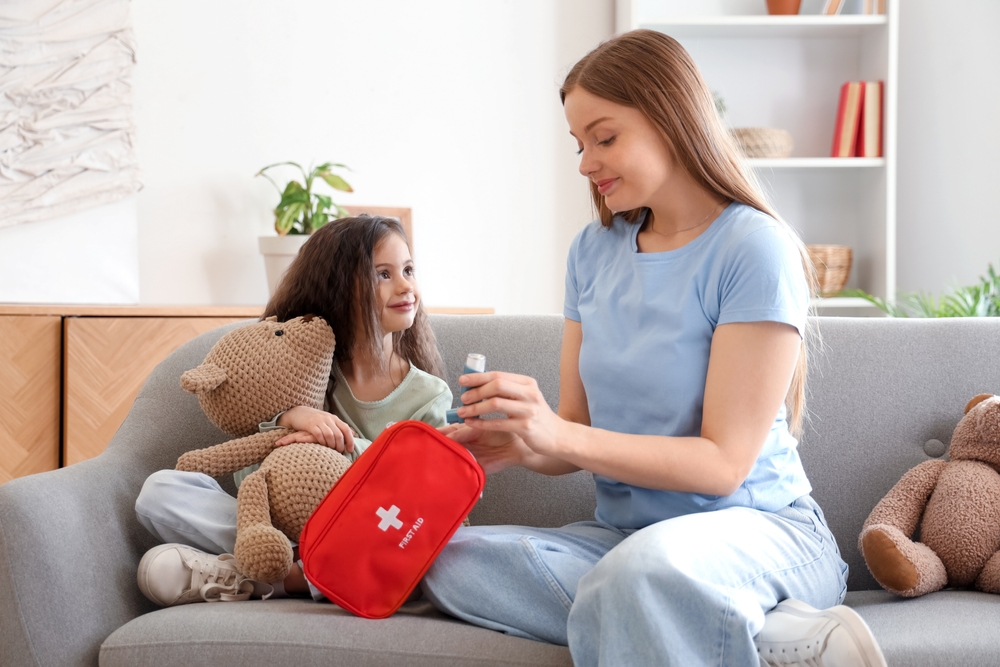As a parent, ensuring the safety and well-being of your child is a top priority. While we all hope never to face an emergency, accidents can happen, and having the right skills and preparation can make all the difference. Pediatric first aid is a crucial skill set every parent should learn. This guide will walk you through essential first aid skills, as well as what supplies to keep on hand both at home and while traveling or engaging in activities with your children.
Understanding Pediatric First Aid
Pediatric first aid differs from adult first aid because children’s bodies are different in structure and size, and they can react differently to injuries and illnesses. Quick and appropriate responses can prevent further harm and ensure that children receive the care they need in a timely manner.
Essential First Aid Skills for Parents
1. CPR and Choking Prevention: Learning CPR for infants and children is fundamental. These techniques differ significantly from adult CPR, especially in terms of the force used and the method of breath delivery. Choking is a common hazard among young children, and knowing how to respond effectively when a child is choking can save a life. To be prepared, take a class from a certified instructor at a hospital or community center in your area.
2. Wound Care: Understanding how to clean and dress cuts, scrapes, or more severe wounds is essential. This includes knowing when a wound can be treated at home and when it warrants a trip to the emergency room.
3. Managing Burns: Knowing the correct procedure for dealing with burns—from thermal burns caused by hot objects or liquids to chemical burns—is critical. This includes cooling the burn, covering it properly, and recognizing when medical attention is needed.
4. Fractures and Sprains: Recognizing the signs of a fracture or sprain, and knowing how to immobilize the injury, can greatly affect healing. While a sprain might be treated with ice and rest, a fracture will require immediate medical attention.
5. Handling Allergic Reactions: Recognizing and responding to allergic reactions, including anaphylaxis, is vital. Parents of children with severe allergies should know how to use an EpiPen (epinephrine auto-injector) and when it’s necessary to use it.
6. Fever and Seizures: Understanding how to manage a child’s fever with medication and physical cooling methods is a basic skill. For seizures, knowing the correct safety measures to prevent injuries and when to seek medical help is crucial.
First Aid Supplies to Have at Home
1. First Aid Kit: Include bandages, gauze, adhesive tape, antiseptic wipes, saline solution for washing out wounds, and an antiseptic cream or ointment.
2. Digital Thermometer: For accurate temperature readings.
3. Pain Relievers: Pediatric versions of ibuprofen or acetaminophen. Note: Aspirin should not be used in children without medical advice from a doctor.
4. Hydrocortisone Cream: For treating mild rashes and irritations.
5. Antihistamine: For managing mild allergic reactions.
6. Pedialyte (or other Oral Rehydration Drink): Useful in case of dehydration from vomiting or diarrhea.
7. Cold Packs and Heat Packs: For bumps, bruises, sprains, or to reduce fever.
8. Tweezers: For removing splinters or ticks.
9. Safety Scissors: For cutting tape, gauze, or clothing if necessary.
10. Emergency Contact Information: Including pediatrician contact details and local emergency services.
First Aid Supplies for Travel or Activities
1. Travel-Sized First Aid Kit: A portable kit that includes essentials like bandages, antiseptic wipes, and gauze.
2. Water Bottle: For hydration or cleaning out wounds.
3. Sunscreen and Insect Repellent: Protection against the sun and bites is especially important outdoors.
4. EpiPen: If prescribed for your child, always have it accessible in the event of an allergy emergency.
5. Medications: Always be prepared with a supply of any regular medications your child requires.
6. Blanket: Useful for treating shock or keeping someone warm if injured.
7. Flashlight: In case of emergencies in poor light or weather conditions.
Tips for First Aid Preparedness
1. Get Trained: Enroll in a pediatric first aid and CPR course. Local hospitals, community centers, or the Red Cross often offer these courses.
2. Practice Regularly: Review and practice the skills regularly to keep them fresh in your mind.
3. Educate Your Child: Teach your child about basic safety and first aid as appropriate for their age.
4. Keep Supplies Updated: Regularly check your first aid kits to replenish supplies and replace expired medications.
5. Stay Informed: Keep up to date with the latest health and safety recommendations from reliable sources.
Knowing pediatric first aid is an essential part of parenting. By acquiring the right skills and keeping the necessary supplies on hand, you can be prepared to handle most common emergencies confidently and calmly. Remember, while first aid knowledge can prevent immediate danger, it’s important to follow up with professional medical care when needed. The health and safety of your child may depend on your preparedness and response in these critical moments.
Let’s Grow Pediatrics Is Your Pediatric Physical Therapy Provider
At Let’s Grow Pediatrics in Edmond, OK, our pediatric physical therapy programs are designed to cater to the unique needs of each child. We create a supportive and fun environment where children can explore their physical abilities, overcome challenges, and build confidence. Our expert therapists use a range of activities, exercises, and play-based interventions to target specific gross motor skill areas. Whether it’s improving balance, coordination, strength, or mobility, we work closely with children and their families to set achievable goals and track progress. Call us today at 405-562-3485.

